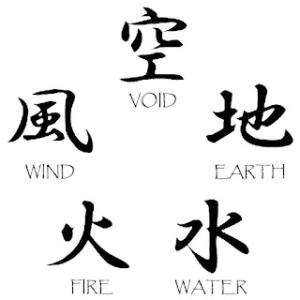 “It was the recommendation of John of the Cross (in a manner similar to that of Gamaliel) that one should not pay particular attention to any phenomena or experiences. If an experience were truly and directly of God, he felt, its truth would become evident naturally in one’s life. If it were of something “else,” it would certainly not be worthy of attention. Therefore, no special attention was necessary.”-Gerald G. May, Care of Mind/Care of Spirit
“It was the recommendation of John of the Cross (in a manner similar to that of Gamaliel) that one should not pay particular attention to any phenomena or experiences. If an experience were truly and directly of God, he felt, its truth would become evident naturally in one’s life. If it were of something “else,” it would certainly not be worthy of attention. Therefore, no special attention was necessary.”-Gerald G. May, Care of Mind/Care of Spirit
The world’s spiritual traditions are rich with claims of mystical experiences. From the Dark Night of John of the Cross and the Interior Castle of Teresa of Avila to the visions of Paramahansa Yogananda and the great Shinto and Buddhist masters, to name just a few-all authentic spiritual traditions have a long-standing mystical tradition. Interestingly we do not find a strong tradition of mysticism in Evangelical Christian circles, where there is a profound distrust of “experiences”. Unfortunately, most Christians live their lives as though the Divine Being were mute. Of course, if we’re serious about spiritual life, we certainly do need to be careful of our experiences, discerning what is real from what is psychologically or emotionally desired. Some people have been misled by their emotions into believing they experienced something spiritual, when in fact they didn’t. However, the desire to do so was so strong that the mind created an illusory one for them.
Serious spiritual adepts will approach mystical experiences with a healthy dose of reason and examine them within the context of the witness of the authentic spiritual traditions. Instead of being swept away by the experience, examine it through the microscope of reason and the witness of the mystics of the past. Ask such questions as:
-
Does it encourage me to spiritual life, or does it simply feed my ego?
-
Does it deny, either implicitly or explicitly, any of the perennial truths?
-
Does it in any way encourage the rejection of spiritual authority, again feeding the ego?
-
Does it move me to unhealthy behaviors?
It is important to keep in mind that mystical experiences are for the individual experiencing them, not for the sangha or other seekers. They do not prove anything to anyone else. Let me explain. I’m not someone who pursued or even gave much thought to mystical experiences. I accepted intellectually that some people had them, but I gave it no other thought than that. For me, the issue was unimportant, until I attended a kirtan and aarti (divine worship) one evening. There was a time of chanting and worship, during which I suddenly had the profound experience of the presence of God. The temple had become so filled with this presence that I felt it in every fiber of my being and had to struggle to hold back tears. I’m hardly an emotive person, so for me this was profound. While I was chanting, I experienced what is called voice dislocation. My voice was disconnected from the actual physical motion of mouth and tongue. This experience is attested to in the Bhakti tradition as one which only an advanced soul will have. I didn’t think of myself as such a soul, but I couldn’t deny the experience. I went to my guru privately and asked him about it. He responded, “No need to worry. The experiences always go away. And in the end, they only confirm something for you, not for your fellow sadhakas. Outside yourself, they’re meaningless.” My guru was correct. What did my experience prove to anyone outside myself? The answer is nothing. In fact, others present at that kirtan (community chanting) didn’t share the experience. It did, however, serve as a powerful witness to the truth of spiritual practice to me.
“We do not see God in contemplation – we know Him by love: for his pure love and when we taste the experience of loving God for his own sake alone, we know by experience who and what he is.”
-Thomas Merton, Seeds of Contemplation
Did I need the experience to believe the Vedas? No. The experience was simply a confirmation, impressing upon me the reality of the perennial truth. I don’t seek to reproduce the experience (since that is artificial and leads to seeking experiences for their own sake), but now simply reflect on that moment whenever I’m discouraged. I know, both intellectually and experientially, that the Divine Being is absolutely there. My experience doesn’t prove it to others, but certainly makes my witness to the veracity of the Vedas much more confident. My experience was in no way superior to my guru or the Vedas, nor equal to them, but simply a confirmation of what they taught.
You can embrace your mystical experiences if they adhere to these same common-sense principles. God speaks to us primarily through sacred writings, through spiritual teachers, sometimes by impression, and when you need it, through experiences that reach into the soul and touch it in such a way that one can never again doubt the value of an encounter with the Divine. In this sense, they are of amazing value to you personally. Approached in this way, you will be less likely to find yourself swept away by such experiences, whether real or imagined.














